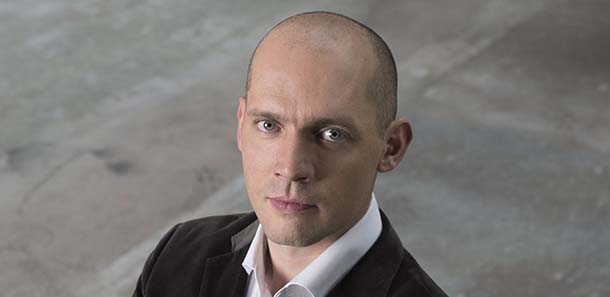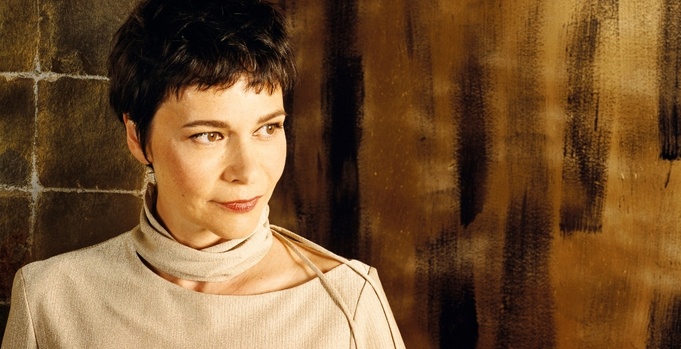In an operatic world in which the director is an increasingly despotic king, it’s good to be reminded that, sometimes, not staging an opera is the most radical reading of all. No elaborate set or concept dominated David Edwards’s one-off Pelléas et Mélisande at the Royal Festival Hall last night. There were just suggestions, allusions, echoes. And a cast – what a cast – that came close to perfection.
Or course Pelléas isn’t just any old opera. Debussy’s “unusual” music-drama breaks all the rules, unfolding in a sequence of dramatic fragments, the orchestra offering the guiding string through their emotional maze. The result demands to be handled with care: grasp it too roughly and – like its heroine – the opera’s meaning shrinks ever further away.
The interludes too were showcases for a minutely blended orchestral sound
Edwards’s semi-staging understood this, deploying gesture with care. Boldest of all was the addition of spoken narration – texts taken from Maeterlinck’s own writing and elegantly arranged by Gerard McBurney. Part synopsis, part literary and philosophical commentary, in Sarah Kestelman’s charged delivery it added a mythic, folkloric quality to proceedings that found a visual echo in Edwards’s direction. A pedestal stood modestly at one side of the stage, occupied by a different object – crown, sword, bird – for each of the five acts. A talisman? A theme? A portent? All these and more.
 And then there was the movement. Freed from the restrictions of scores, the cast moved extensively, but rather than collide Debussy’s stylised interactions and Maeterlinck’s symbolist action with naturalistic gestures, Edwards kept his figures at a distance. A single encounter – Pelléas (Stéphane Degout, pictured right) grasping Mélisande’s hair, for example – would take place dually and separately, each figure enacting their portion on opposite sides of the stage. Rather than alienating though, the effect was curiously natural, emerging out of (and responding to) the curious coolness, the emotion-recalled-in-tranquility of Debussy’s score.
And then there was the movement. Freed from the restrictions of scores, the cast moved extensively, but rather than collide Debussy’s stylised interactions and Maeterlinck’s symbolist action with naturalistic gestures, Edwards kept his figures at a distance. A single encounter – Pelléas (Stéphane Degout, pictured right) grasping Mélisande’s hair, for example – would take place dually and separately, each figure enacting their portion on opposite sides of the stage. Rather than alienating though, the effect was curiously natural, emerging out of (and responding to) the curious coolness, the emotion-recalled-in-tranquility of Debussy’s score.
Conducting the Philharmonia Orchestra for this, the opening concert in their City of Light season of Paris-themed events, Esa-Pekka Salonen played a long game. Just as the opera’s action unfolds at a distance, so the music remains curiously muted, veiled, until at least Act III Scene III and the emergence from the castle vaults. Delaying release until this point, Salonen let sudden light flood the stage – a musical coup de theatre so natural, and so hard to achieve. The interludes too were showcases for a minutely blended orchestral sound bordered by metallic harps at one end and the woody massed strings at the other.
 Standing in for an ailing Monica Bacelli, Sandrine Piau’s Mélisande (pictured left) was as troubling as it was poised. Piau’s nymph-like delicacy suits no role so well as this traumatised princess, and here it set off a vocal performance in which every utterance was drama first and music second. Denied the opportunity to dazzle with her fine-spun legato in extended phrases (save the opening of the tower scene in Act III scene I – exquisitely sung), she instead found beauty and psychological interest in disjuncture, in the stichomythic exchanges that divide a single melody into conversational fragments.
Standing in for an ailing Monica Bacelli, Sandrine Piau’s Mélisande (pictured left) was as troubling as it was poised. Piau’s nymph-like delicacy suits no role so well as this traumatised princess, and here it set off a vocal performance in which every utterance was drama first and music second. Denied the opportunity to dazzle with her fine-spun legato in extended phrases (save the opening of the tower scene in Act III scene I – exquisitely sung), she instead found beauty and psychological interest in disjuncture, in the stichomythic exchanges that divide a single melody into conversational fragments.
She was aided by a Pelléas of rare quality in Stéphane Degout. A baritone whose voices peels away its darker outer layers to reveal an upper register of properly tenorial sweetness, Degout finds a natural path through Debussy’s challenging writing, making sense vocally of a man who lives in the liminal spaces – not brother, not stranger, not husband, not lover. He had plenty to chafe up against in Laurent Naouri’s Golaud, who moved from surprising opening gentleness to closing horror in terrifyingly gradual evolution. Right up until the murder of Pelléas it could all still have gone another way – a cruel potential that other overtly darker productions have lacked.
Felicity Palmer gave her best performance in ages as Geneviève, with Chloe Briot was an urgent and brightly sung Yniold. Only Jerome Varnier didn’t quite connect as Arkel – too youthful, for one, but also vocally a little too detached, lacking the character needed at the lower end of the voice to really ground his scenes musically.
It’s a small quibble though. This was a Pelléas of rare conviction, a performance to make sense of a score whose problems and challenges feature far larger in discussion than its virtues. I’d now call loudly for more stagings, but that would rather defeat the point. Besides, I’d like to live with the memory of this non-staging for a while longer first.
- The Philharmonia Orchestra's City of Light season continues until May 2015















Add comment